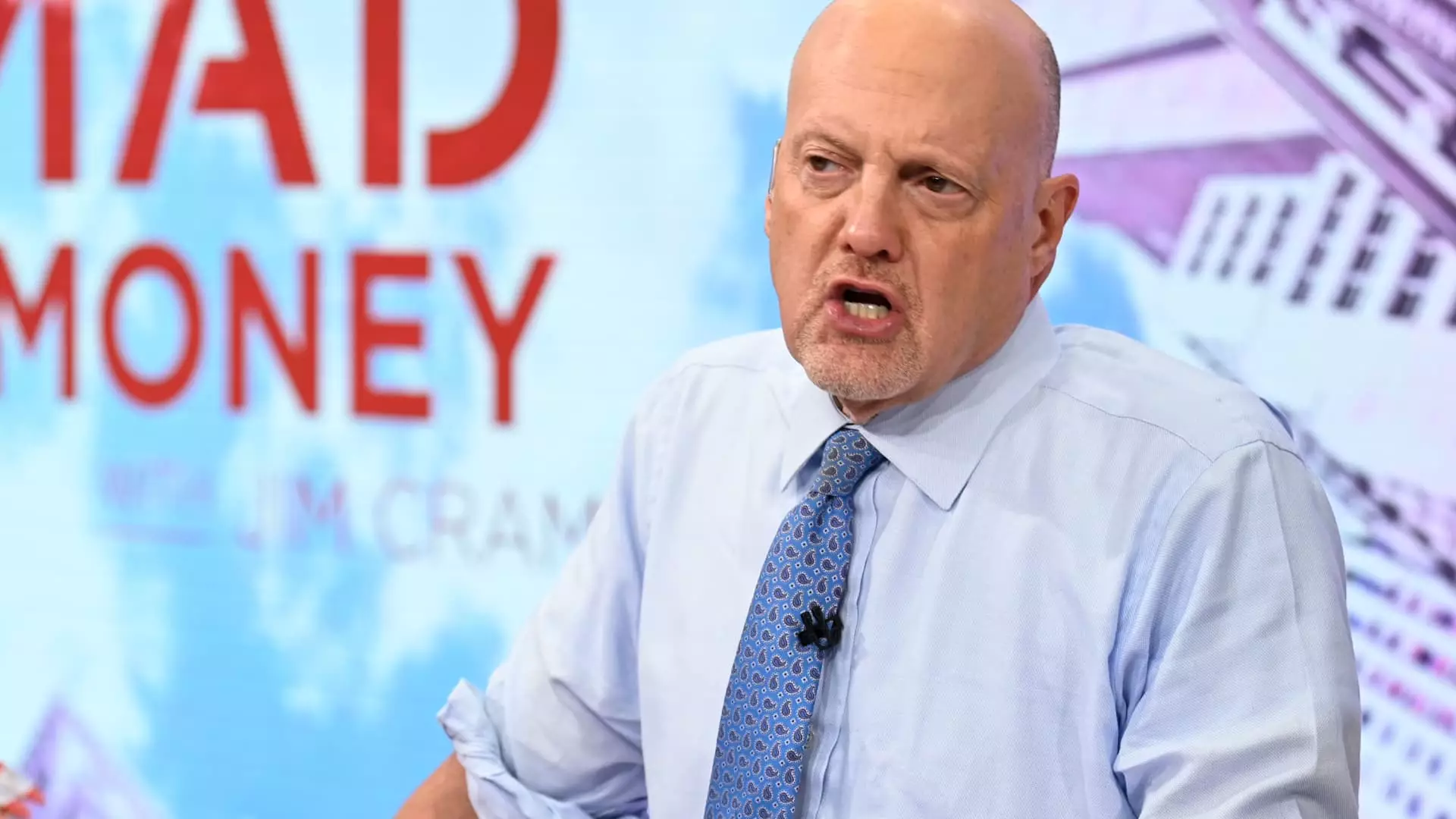In a world where economic interdependence is the norm, President Trump’s aggressive imposition of tariffs has sent shockwaves through global stock markets. As companies brace themselves for the impending storm of earnings reports that follow, investors are left to grapple with uncertainty on a scale not seen in decades. Notably, market analysts like Jim Cramer have been vocal about the precarious position in which corporate America finds itself, caught between management decisions and an unpredictable White House. The forthcoming earnings season is not merely a reflection of individual company performance; it showcases how entrenched political decisions are becoming in capitalist markets, ultimately raising the stakes for everyone involved.
Impending Earnings and the Shadow of Tariffs
Upcoming earnings reports from major banks and retail giants are poised to illuminate the dim corridors of corporate strategies in the face of tariff-induced turmoil. Big banks like JPMorgan Chase and Morgan Stanley are pivotal, as their outcomes will provide the first tangible measurement of how businesses are adjusting to the new economic landscape. Yet, regardless of how these companies perform, Cramer astutely points out that their fates are largely tethered to Presidential whims. If Trump remains obstinate in his approach, the repercussions could compound, leading to a scenario reminiscent of the Black Monday crash of 1987.
Retailers, particularly those like Levi Strauss, are uniquely vulnerable. Faced with rising input costs due to tariffs on raw materials and imports, they must navigate a treacherous path of consumer expectations and fluctuating prices. Historically, Levi Strauss has suffered from disappointing guidance, and now, with tariffs amplifying these issues, the risk of severe stock punishment could loom even larger. Announcements from other retail sectors, including pharmacy chains and food producers, are also laden with expectations set against the harsh consequences of inflation tied to new tariff policies.
The Ripple Effects Across Industries
The repercussions of tariffs extend far beyond the immediate sectors affected. For instance, Delta Air Lines’ upcoming earnings will be a litmus test for the broader travel industry. With discretionary spending increasingly squeezed by inflation, any negative outlook could send repercussions through hospitality and ancillary travel businesses. Similarly, firms like Constellation Brands face the dual challenge of rising costs due to tariffs and changing consumer preferences in the alcoholic beverage market. These intertwined dynamics stress that the economic landscape is shifting beneath the feet of once-stable giants.
Conversely, companies such as CarMax find themselves in an intriguing predicament. While tariffs on new vehicles could lead to an uptick in used car sales, the looming threat of a recession could overshadow any potential gains. The introduction of used-vehicle sales as a growth avenue amidst such uncertainty paints a concerning picture of just how far businesses must stretch to remain viable.
Inflation’s Persistent Grip
As Cramer notes, inflation appears to be a stubborn adversary in this economic battle, and Trump’s tariffs are only exacerbating this condition. The Consumer Price Index report that’s anticipated will likely reveal data that further complicate the Federal Reserve’s stance on interest rates. Rising prices create a quagmire; cutting rates could stimulate growth but risks igniting even higher inflation. This duality poses a critical question: can the economy endure the stresses imposed by tariffs while simultaneously managing inflationary pressures?
The real dilemma surfaces when considering the Fed’s options. If banks like BlackRock report disappointing numbers and broader economic indicators align with a bearish outlook, the Federal Reserve may be forced into a corner. The cycle of tariff-induced economic woes paired with persistent inflation creates a complex environment in which the Fed’s decision could either forge a path to recovery or deepen the economic malaise.
Hope on the Horizon?
While analysts like Cramer express skepticism regarding the future, they also highlight the faint glimmers of hope that could emerge. A shift in Trump’s tariff policy could breathe new life into the markets, helping turn a bearish sentiment into a bullish momentum. Yet, such decisions seem increasingly unlikely in this climate of political strife and polarization. The interplay between corporate earnings, economic indicators, and policy decisions evokes a sense of trepidation, illustrating just how precariously perched the financial markets truly are today.

